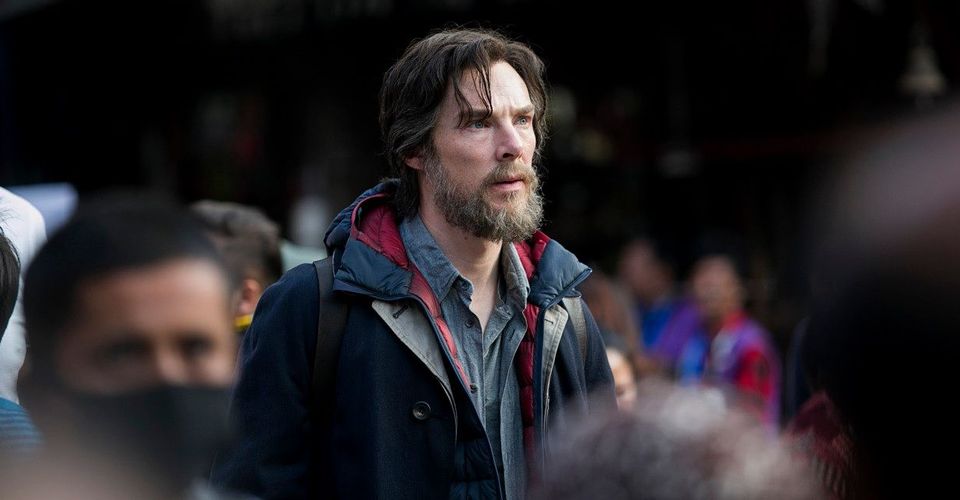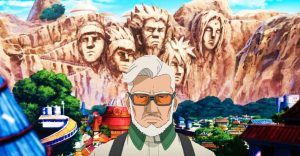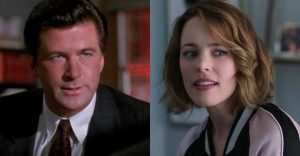Doctor Strange’s Erasure Of Tibet Is A Political Statement

For Hollywood studios looking to maximize profits on their latest blockbuster, securing a release in China is a serious priority. The country’s 1.4 billion-strong population makes it the second largest film market in the world, and it could potentially even surpass the U.S. film market within the next decade. Ensuring that a release makes it onto the quota of 34 foreign films each year that China imports on a revenue sharing basis can make a big difference to a movie’s overall box office haul, but securing this theatrical release often comes with some form of compromise.
When it comes to superhero movies, perhaps no production company has been more successful at charming China than Marvel Studios. Last year’s team-up Avengers: Age of Ultron grossed over $240 million at the Chinese box office, a quarter of its total worldwide gross. Though Hollywood movies only receive 25% of the Chinese box office take, $60 million is not to be sniffed at.
Before Marvel movies can make their way into China’s theaters, however, they must first undergo scrutiny by the State Administration of Press, Publication, Radio, Film and Television, the government body in charge of approving media for consumption by the Chinese populace, and keeping an eye out for any scenes that could be perceived as portraying China, the Chinese government, or the Chinese people in a negative light. Perhaps the most notable example of Marvel’s efforts to keep the SAPPRFT happy and cater to Chinese audiences is Iron Man 3, in which the Mandarin, a villain of Chinese origin in the comics, was portrayed as being of ambiguous ethnicity and eventually revealed to be nothing but a sock puppet created by the true villain, Aldrich Killian. Moreover, the Chinese version of Iron Man 3 included additional scenes featuring Chinese movie stars Fan Bingbing and Wang Xueqi as the surgeons who are finally able to remove the shrapnel from Tony Stark’s chest.
Of course, Marvel is far from the only studio to flirt with China in this way. In the 2012 remake of Red Dawn, the invading army was originally Chinese but was changed to North Korean in post-production. 2013 zombie movie World War Z underwent an edit to remove a moment during which characters speculate as to whether the zombie outbreak may have originated in China. And while it was a plot point lifted from the book, sci-fi drama The Martian certainly benefited from depicting the China National Space Administration as the saving grace that offers essential help in getting astronaut Mark Watney back home.
Common sense dictates that the bigger a movie’s budget and the more backing it has, the more its content will be dictated by a need to maximize profits rather than artistic choices. For the most part, such changes are pretty inoffensive; while some Chinese moviegoers may have rolled their eyes at the obvious product placement for milk drink Gu Li Duo in Iron Man 3, it’s really no worse than any other example of product placement.
Recently, however, discussion of Marvel’s relationship with the Chinese film market came to light once again after C. Robert Cargill, one of the screenwriters who worked on Doctor Strange, spoke very bluntly about changes made to Stephen Strange’s mentor in mysticism, the Ancient One. In the comics, the Ancient One is hundreds of years old and originates from the area that would later become known as Tibet, and Doctor Strange travels to Tibet to find him. Naturally, the Ancient One’s original background was a bit of a sticking point for Marvel because, as Cargill explained:
“The Ancient One was a racist stereotype who comes from a region of the world that is in a very weird political place. He originates from Tibet, so if you acknowledge that Tibet is a place and that he’s Tibetan, you risk alienating one billion people who think that that’s bulls**t and risk the Chinese government going, ‘Hey, you know one of the biggest film-watching countries in the world? We’re not going to show your movie because you decided to get political’…
“The only way this character could be more awkward is if he had been made back in the thirties… and instead of going to the Orient [Doctor Strange] went to Palestine and learned from a Palestinian master… That’s the only way this could be any uglier than this one now.”

After his comments were picked up by various news outlets, Cargill hastily clarified that he had not been speaking on behalf of Marvel, and that he had never had a conversation with anyone from the studio regarding the role of China or Tibet. In an open letter to the New York Times, Cargill wrote, “Those original statements were my own personal musings about a character… [I] was not part of any casting discussions or decisions so I had no right or knowledge to speak about them as if I was.” Since Cargill was only brought on board to work on the script after the first draft was already written, it’s likely that the decisions about where Doctor Strange would travel and what the Ancient One would look like had already been made when he joined the project.
Marvel also responded to the hubbub surrounding Cargill’s statements, clarifying that Tilda Swinton will play a Celtic embodiment of the Ancient One and pointing to the studio’s “strong record of diversity.” The response didn’t, however, make any mention of Cargill’s comments about Tibet, or address the accusations that changes were made to placate China. Tibetan National Congress President Jigme Ugen commented, “The whitewashing of #DrStrange is also kowtowing to #China to twist history. Something the Ancient One would forbid.”
Though Cargill is no doubt being truthful when he says that no one at Marvel directly told him, “We can’t mention Tibet because it might upset China,” common sense dictates that this is exactly the reason why Stephen Strange travels to Nepal, rather than Tibet, and why the Ancient One is Celtic instead of Tibetan. What’s particularly interesting about the screenwriter’s comments, however, is the implication that merely acknowledging the existence of Tibet would be “getting political” on Marvel’s part, whereas dodging the China-Tibet issue entirely is somehow not political.

It scarcely needs to be said, but Marvel’s decision to quietly excise Tibet from Doctor Strange’s origin story is not apolitical. The studio has absolutely taken a side on the issue of the Tibet-China conflict, and it has sided with the Chinese government – an obvious choice, considering that the SAPPRFT is the gatekeeper to China’s massive population and substantial Marvel fanbase. But unlike awkwardly shoehorned scenes with Chinese actors or product placements for Chinese milk drinks, the erasure of Tibet from a major Hollywood blockbuster isn’t so easy to just shrug off. At worst, it could be argued that Marvel is being complicit in the oppression of a people whose troubled history has included human rights violations such as false imprisonment and torture by Chinese officials, many horrifying instances of Tibetans self-immolating in protest, and ongoing restrictions of freedom of religion, speech and the press. With all that in mind, Marvel’s decision to play along with the Chinese government’s stance on Tibet, even by simply avoiding acknowledgement of its existence, suddenly doesn’t seem so harmless.
From a business perspective, the decision makes perfect sense. China is, as previously mentioned, the largest film market in the world outside of the U.S., and as far as Marvel’s primary market is concerned the Tibet-China conflict is (generally speaking) a non-issue. The majority of moviegoers in the Western hemisphere probably couldn’t even point to Tibet on a map, let alone care deeply enough about its independence to boycott a movie just because its protagonist goes on a spiritual journey to Nepal instead. People tend to care more about the issues that are closer to home and most relevant to their own daily lives. It’s one of the reasons why the removal of Tibet from Doctor Strange’s origin story has been so vastly overshadowed by the continuing conversation about whitewashing in Hollywood and the lack of meaty roles for Asian-American actors.
It could be argued that even without the shiny appeal of China’s box office, Doctor Strange still would have ended up changing settings in order to avoid the potential pitfalls of setting a fun supernatural adventure in a real-world hotbed of political and social issues (Cargill’s example of a comic book character travelling to Palestine for his training is an apt one). In this case, however, the omission of Tibet is a political move precisely because it serves a particular status quo. Perhaps the best comparison is the fact that no Disney movie has ever featured an explicitly gay character; even in the MCU, characters like Agents of S.H.I.E.L.D.‘s Joey Gutierrez and Jessica Jones‘ Jeri Hogarth are kept strictly on the TV side. While some might argue that this is simply a case of Disney not wanting to take a stance on a sensitive topic like LGBT representation, the total lack of LGBT characters is, in itself, a political stance; with each new movie that only features heterosexual characters, Disney incrementally reinforces the idea that gay characters aren’t suitable for media aimed at children.

That, too, is a business-driven decision. After all, there are many parents who would refuse to take their kids to a movie that featured gay characters, but not many who would refuse to take their kids to a movie unless it featured gay characters. There’s a case to be made that the publicity value of a Disney movie with a gay protagonist or supporting character would be worth the risk, but that’s obviously not a risk that Disney is willing to take just yet.
This cuts both ways, of course. The diversity that Marvel boasts of in its response statement is equally political: casting Idris Elba as Norse god Heimdall was political, as was changing the Ancient One’s gender. Even if the artistic intent behind these casting choices was apolitical, the message that it sends is not. The more cynical mind might argue that Marvel’s push for diversity is just as money-driven as pandering to China, since studies have shown that films with greater diversity among their casts perform better at the box office.
That, really, is the crux of the issue; with hundreds of millions of dollars on the line, any film studio is always going to listen to money first and morals second. But while big budget superhero movies that touch on political issues tend to stick to messages that are either largely non-contentious (i.e. the X-Men movies’ stance that discrimination is bad) or abstract (i.e. Captain America: Civil War‘s question of whether people with superpowers should be subject to oversight), it’s basically impossible for such an influential piece of media to avoid politics entirely.
Captain America: Civil War opens in theaters May 6, 2016, followed by Doctor Strange – November 4, 2016; Guardians of the Galaxy Vol. 2 – May 5, 2017; Spider-Man: Homecoming – July 7, 2017;Thor: Ragnarok – November 3, 2017; Black Panther – February 16, 2018; Avengers: Infinity War Part 1 – May 4, 2018; Ant-Man and the Wasp – July 6, 2018; Captain Marvel – March 8, 2019;Avengers: Infinity War Part 2 – May 3, 2019; and as-yet untitled Marvel movies on July 12, 2019, and on May 1, July 10, and November 6 in 2020.
About The Author


















